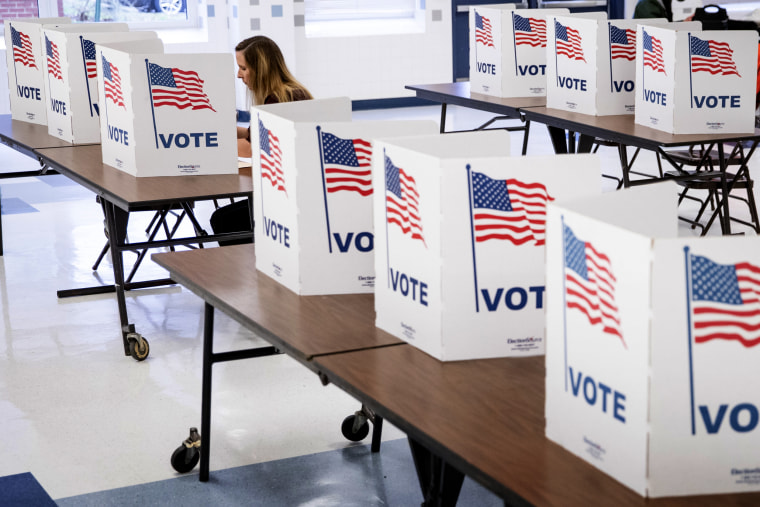As rough as the 2018 election cycle was for Republicans, 2019 was arguably worse. The party's gubernatorial candidates fell short in Kentucky and Louisiana, despite Donald Trump's considerable efforts, and Democrats took complete control in Virginia, flipping both chambers of the state legislature.
And in the Old Dominion, the new Democratic majority is, among other things, changing the way Virginia's electorate has access to the ballot box.
Virginia Gov. Ralph Northam signed legislation that repeals voter ID laws, makes Election Day a state holiday and expands access to early voting.... Early voting will now be allowed 45 days prior to an election without a stated excuse. Previously if voters wanted to participate in early voting, they would need to provide a reason from a list approved by the state. A separate bill expanded absentee voting timelines.
"Voting is a fundamental right, and these new laws strengthen our democracy by making it easier to cast a ballot, not harder," Northam said in a press release yesterday. "No matter who you are or where you live in Virginia, your voice deserves to be heard. I'm proud to sign these bills into law."
What's more, let's not forget that the package of reforms included automatic voter registration for the commonwealth. According to the latest tally, I believe Virginia is the 19th state, plus the District of Columbia, to adopt AVR.
Not bad for a policy that didn't exist in any state as recently as five years ago.
Revisiting our previous coverage, I've long believed this is a policy that's tough to argue against. When it comes to registering to vote in the United States, the burden has traditionally been on the individual: if you're eligible to vote, it's up to you to take the proactive steps needed to register. Automatic voter registration, which already exists in many of the world's democracies, flips that model.
The idea is exactly what it sounds like: under the policy, states automatically register eligible voters, shifting the burden away from the individual. Those who want to withdraw from the system can do so voluntarily without penalty, but otherwise, Americans would simply be added to the voters rolls as a matter of course.
This tends to be a Democratic priority, though I see it more as an example of good governance than a partisan tactic. After all, when Donald Trump won, voter registration wasn't the principal problem for Dems; the failure of already registered voters to show up was a far more consequential issue. (For more along these lines, note Paul Glastris' recent editorial in the Washington Monthly.)
That said, automatic voter registration, regardless of its electoral impact, continues to advance, slowly but surely.
Postscript: At the federal level, it's worth noting that AVR is a key element of the House Democrats' "For the People Act" (H.R. 1), a voting-rights package that cleared the chamber a year ago. Senate Majority Leader Mitch McConnell (R-Ky.) has said he won't let the upper chamber consider the bill, calling it "socialist."
